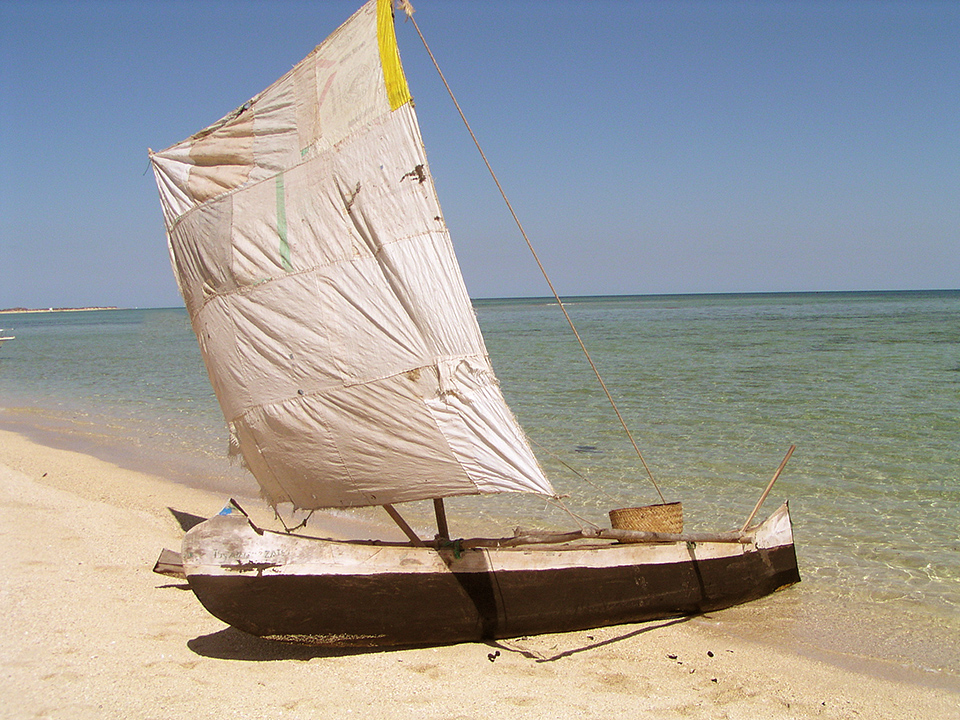We began our voyage in Antananarivo, the capital of Madagascar, where we met our driver Aire, gathered the Toyota Land cruiser and headed south through the central highlands to the arid southwest coast. 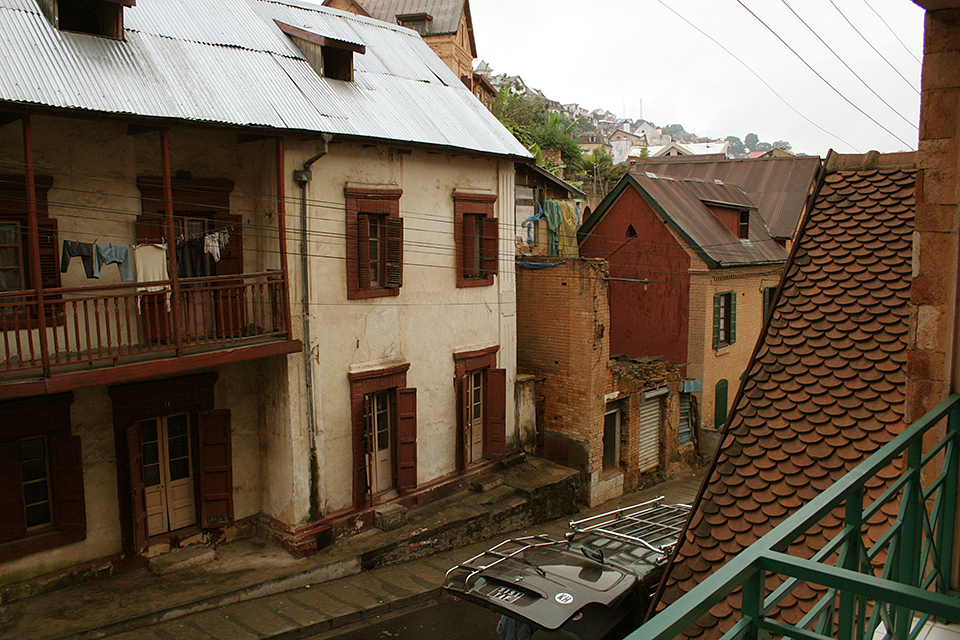 We visited villages meeting with the local people, old and young alike. The people were incredibly friendly and polite and many cases were as curious of us as we were of them.
We visited villages meeting with the local people, old and young alike. The people were incredibly friendly and polite and many cases were as curious of us as we were of them.
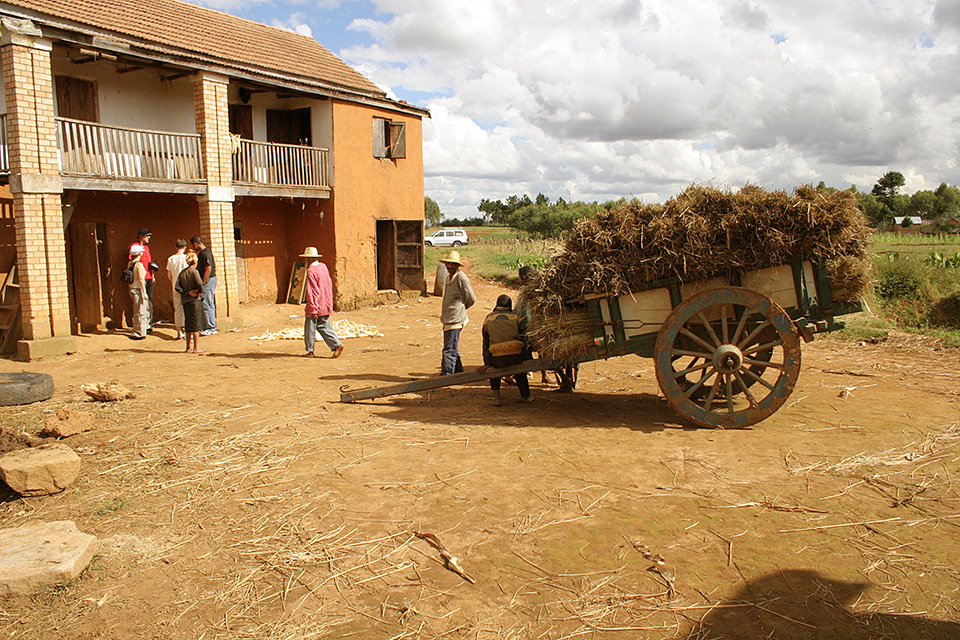 The local mayor of the first village. It seems that the local water supply had a devastating effect on teeth, but it didn’t bother him in the least bit.
The local mayor of the first village. It seems that the local water supply had a devastating effect on teeth, but it didn’t bother him in the least bit. 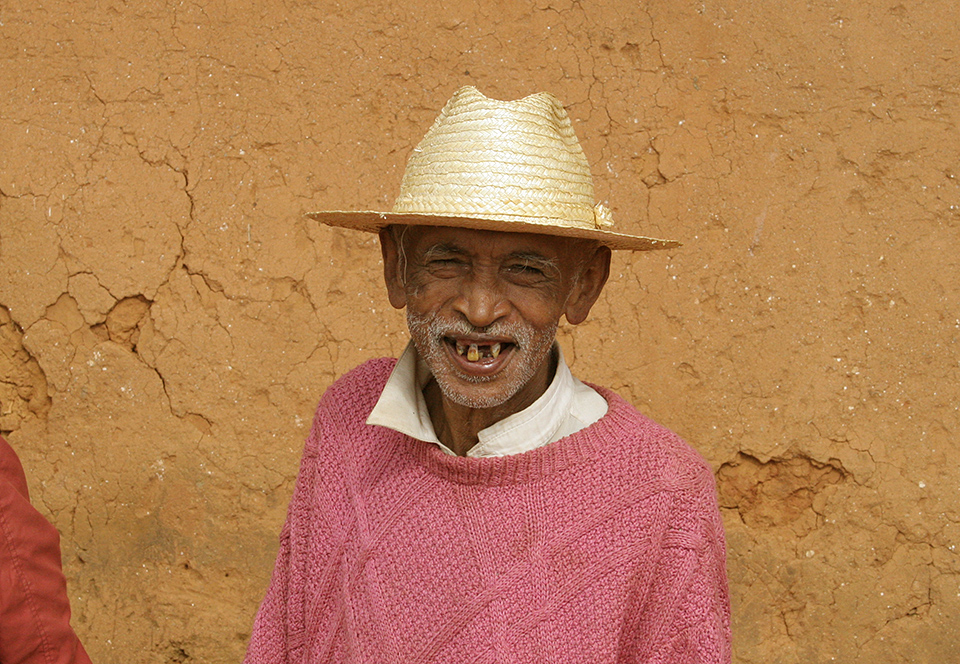
 The children were nothing short of awesome. So polite, friendly and unassuming.
The children were nothing short of awesome. So polite, friendly and unassuming.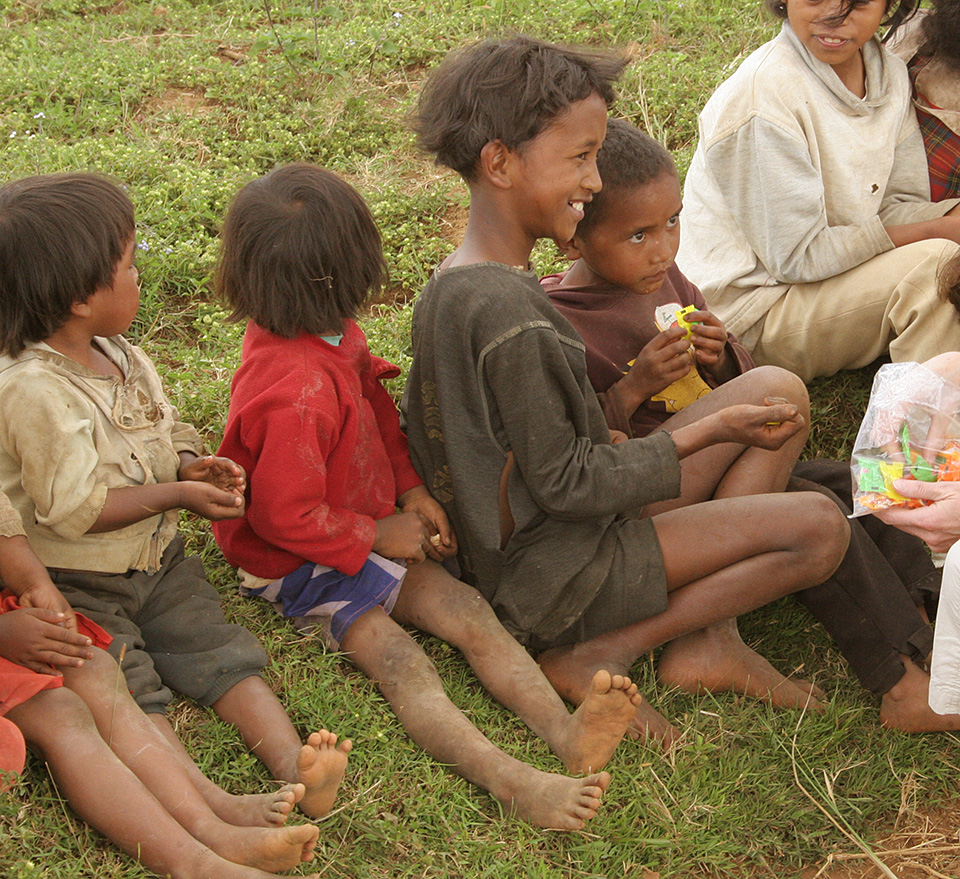
 Madagascar was at the crossroads of world trade and was heavily populated by Asians. Their occupation of the Island nation can be seen today in the features of the people as well as less obtuse examples such as the use of ricksha for public transport.
Madagascar was at the crossroads of world trade and was heavily populated by Asians. Their occupation of the Island nation can be seen today in the features of the people as well as less obtuse examples such as the use of ricksha for public transport. 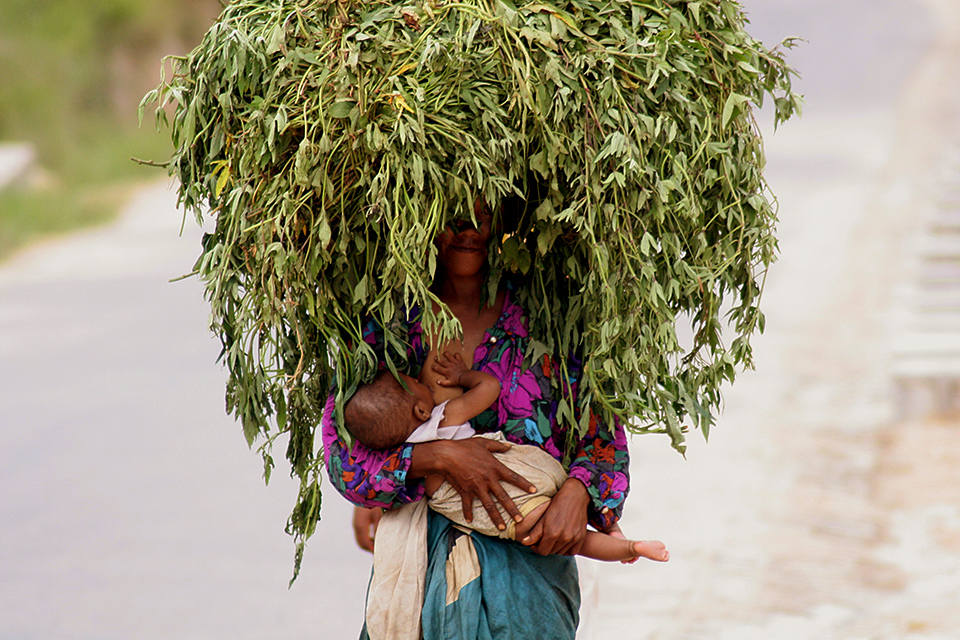 There is essentially a single paved road running north south through the length of the country. There were undoubtedly more pedestrian traffic on the road than motor vehicles including this women carrying vegetation on her head while feeding her child.
There is essentially a single paved road running north south through the length of the country. There were undoubtedly more pedestrian traffic on the road than motor vehicles including this women carrying vegetation on her head while feeding her child.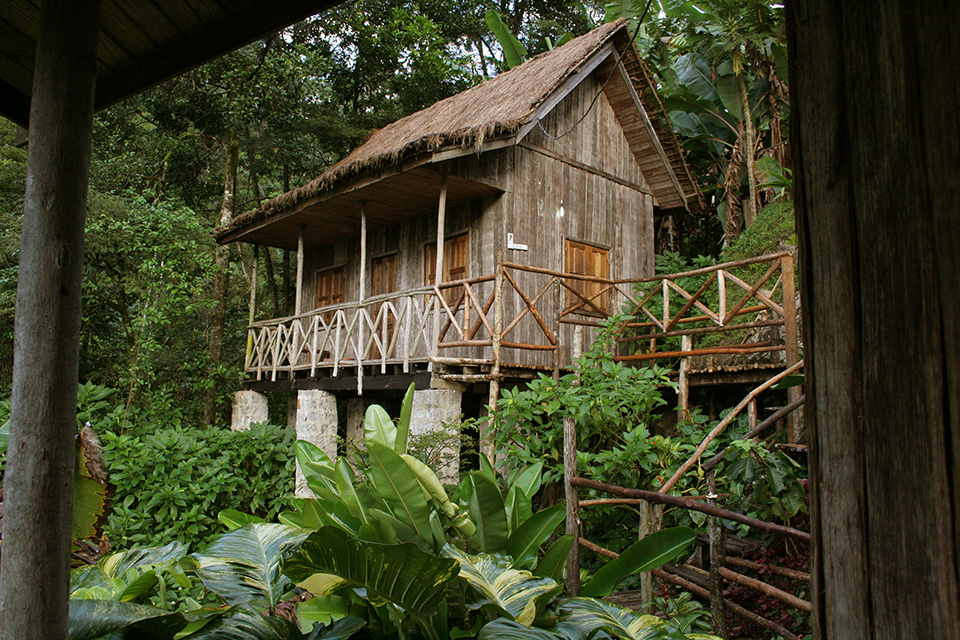 We spent the night in the jungle before foraging into the jungle in search of Lemer. This “hotel” was a bit crude. It was hot, damp and bug infested. It was quite the experience but not one worthy of repeating.
We spent the night in the jungle before foraging into the jungle in search of Lemer. This “hotel” was a bit crude. It was hot, damp and bug infested. It was quite the experience but not one worthy of repeating. The further south we traveled, the less lush the countryside and the less productive the land which could be seen in the apparent prosperity of the people. This village included two story houses with dirt floors. The second story housed the kitchen with open fireplaces for cooking and sleeping areas. The smoke from the fireplaces helped keep the insects away.
The further south we traveled, the less lush the countryside and the less productive the land which could be seen in the apparent prosperity of the people. This village included two story houses with dirt floors. The second story housed the kitchen with open fireplaces for cooking and sleeping areas. The smoke from the fireplaces helped keep the insects away. And despite the increasing poverty we incurred as we traveled south, were the children. It was interesting to note that the kids to the more prosperous north never begged.
And despite the increasing poverty we incurred as we traveled south, were the children. It was interesting to note that the kids to the more prosperous north never begged.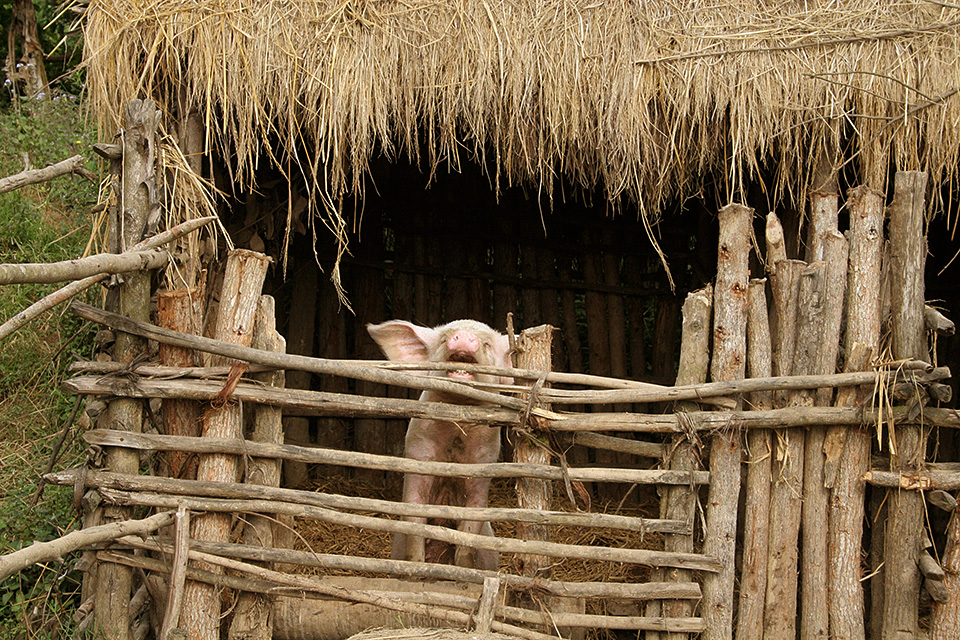
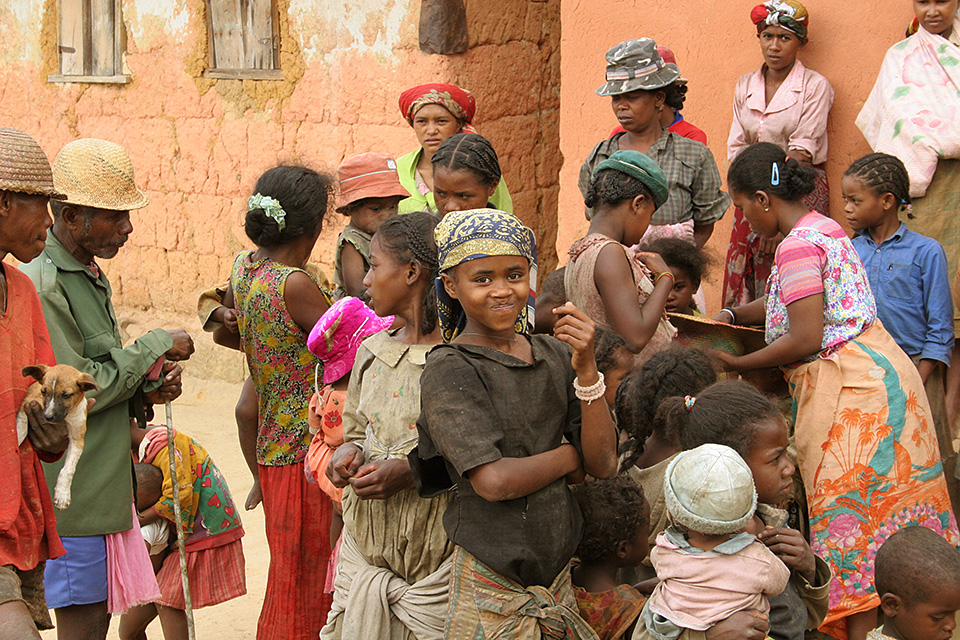 In the village, this girl was full of mischief as she looked.
In the village, this girl was full of mischief as she looked. While we had seen lemer in the jungle, it was very hard to find them, let along see them. We went to a park where they were used to humans and you could hand feed them. They would grab you hand with their paws and gently eat the fruit. There paws were very soft which enabled them to climb so well.
While we had seen lemer in the jungle, it was very hard to find them, let along see them. We went to a park where they were used to humans and you could hand feed them. They would grab you hand with their paws and gently eat the fruit. There paws were very soft which enabled them to climb so well.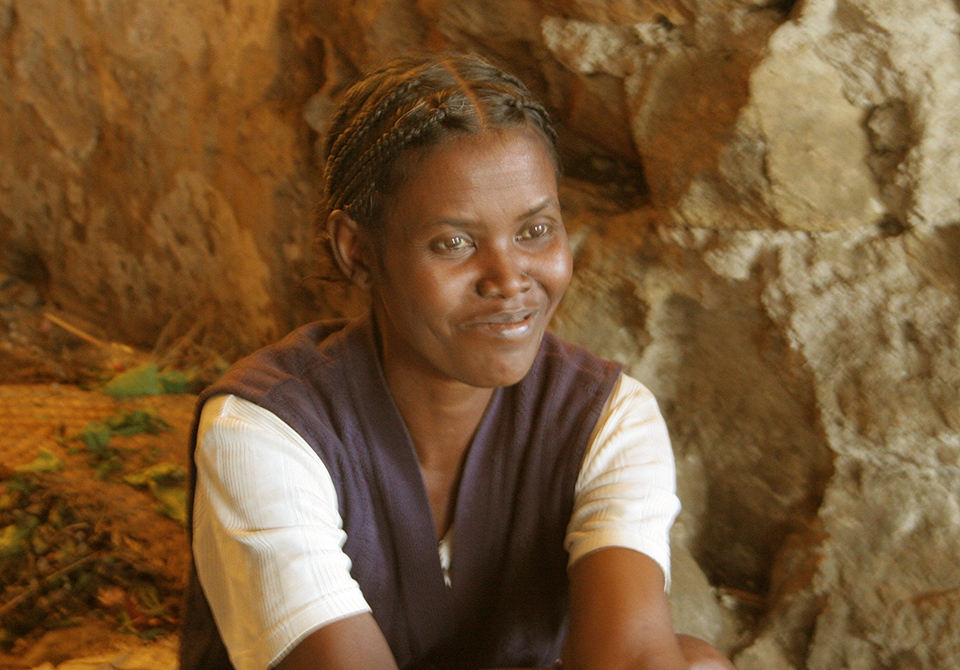

 These women proudly displaying the days catch as we reached the southern tip of the country.
These women proudly displaying the days catch as we reached the southern tip of the country.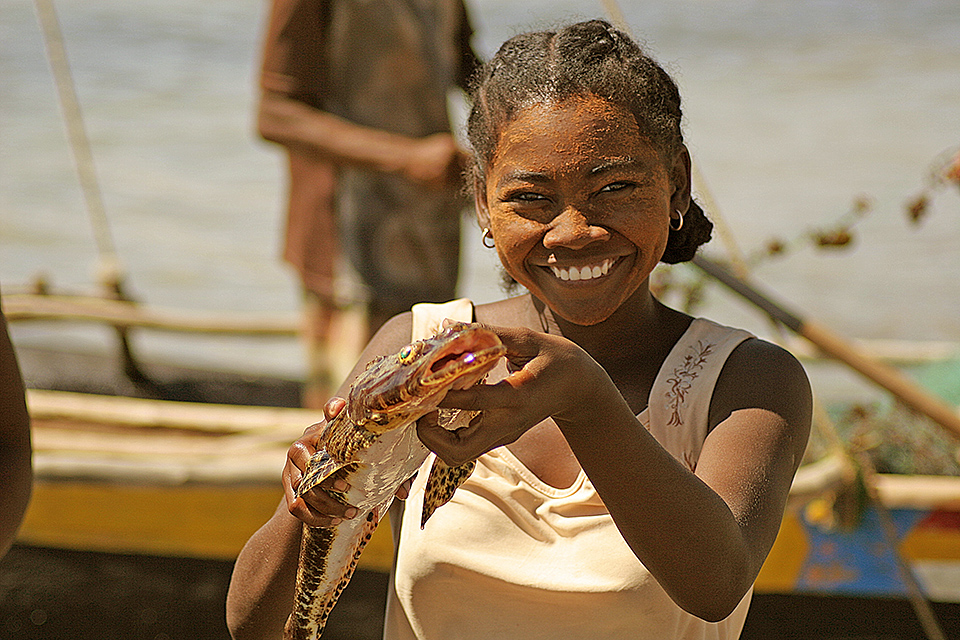 As we reached the south coast, it was very arid with little vegetation. The primary subsistence was based on fishing.
As we reached the south coast, it was very arid with little vegetation. The primary subsistence was based on fishing.
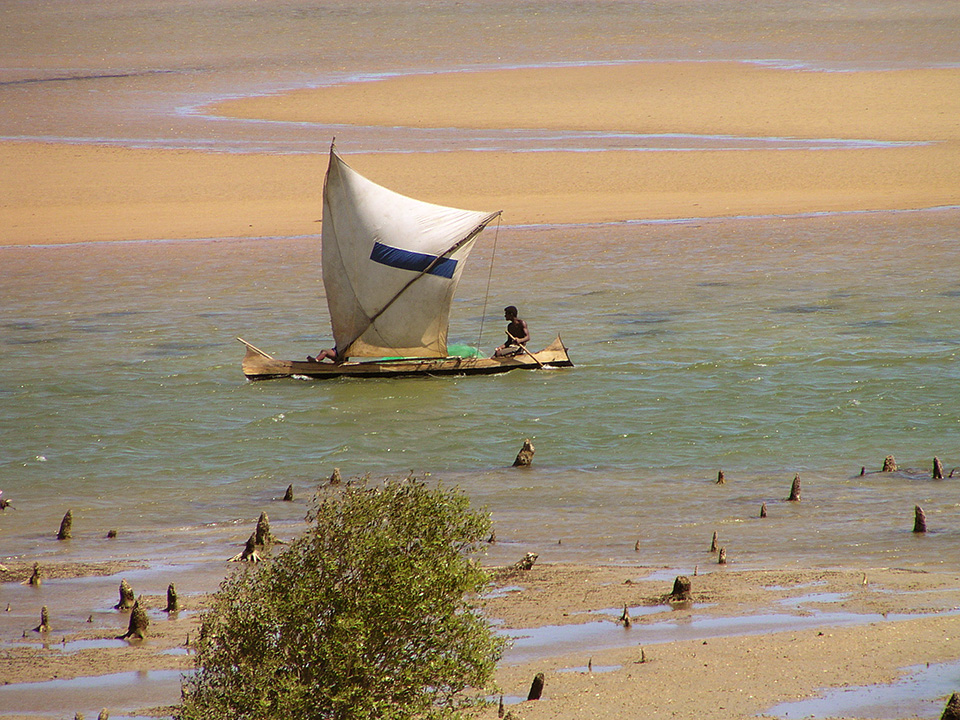 Local fishing boat with their patch cult sails.
Local fishing boat with their patch cult sails.